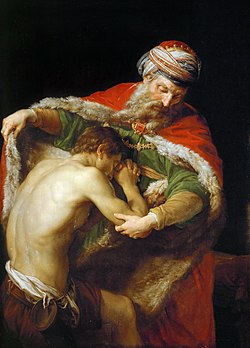 |
| Icon of St. Paul preaching to the philosophers of Athens |
I am coming back to write here at Cor-Inquietum (I know, the
misspelling on the URL, it hurts, I know, I know - ) as part of a Lenten
resolve to reflect more deeply on the Catholic faith, and life in the light of
the Lord, or rather the light of the Lord on life. In this post I would like to
briefly consider the modern lexical shift in the philosophy of judgment, from
one human being on to another, and then from God’s relationship as Judge to the
human soul. I will try and construct my brief meditations from the readings of
the Mass for Sunday March 2nd. These were Isaiah 49:14-15; Psalm 62:
2-3, 6-7, 8-9; 1 Corinthians 4:1-5; Matthew 6: 24-34. It is with humility that we must approach the throne of the Lord,
though we do so with the renewed confidence that we can boldly approach the
Throne of Grace through the mediation of Our Lord Jesus Christ, King of all
Creation. Humility because we cannot be presumptuous of God’s mercy as if it
were all from our merit, and confidence because it is on account of Christ’s
merit and God’s condescending love that we know we are loved
unconditionally.

